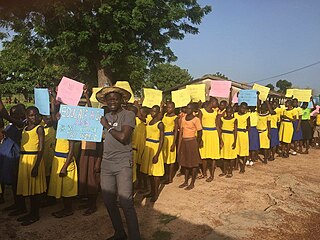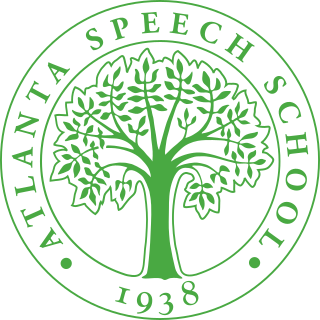Related Research Articles
Occupational therapists (OTs) are health care professionals specializing in occupational therapy and occupational science. OTs and occupational therapy assistants (OTAs) use scientific bases and a holistic perspective to promote a person's ability to fulfill their daily routines and roles. OTs have training in the physical, psychological, and social aspects of human functioning deriving from an education grounded in anatomical and physiological concepts, and psychological perspectives. They enable individuals across the lifespan by optimizing their abilities to perform activities that are meaningful to them ("occupations"). Human occupations include activities of daily living, work/vocation, play, education, leisure, rest and sleep, and social participation.

A psychologist is a professional who practices psychology and studies mental states, perceptual, cognitive, emotional, and social processes and behavior. Their work often involves the experimentation, observation, and interpretation of how individuals relate to each other and to their environments.
Counseling psychology is a psychological specialty that began with a focus on vocational counseling, but later moved its emphasis to adjustment counseling, and then expanded to cover all normal psychology and psychotherapy. There are many subcategories for counseling psychology, such as marriage and family counseling, rehabilitation counseling, clinical mental health counseling, educational counseling, etc. In each setting, they are all required to follow the same guidelines.
The Master of Education is a master's degree awarded by universities in many countries. This degree in education often includes the following majors: curriculum and instruction, counseling, school psychology, and administration. It is often conferred for educators advancing in their field. Similar degrees include the Master of Arts in Education and the Master of Science in Education.

St. Austin Catholic School is a private, Catholic elementary and middle school with a full-time and part-time 3 year olds class, a class for 4 year olds and Kinder - 8th. St. Austin is located in downtown Austin, Texas, one block from UT campus, Dell Medical School and four blocks from the Texas State Capital. St. Austin is located within the Diocese of Austin. St. Austin offers a diverse learning environment with a great deal of individualized attention. in 2005 St. Austin received the honorable distinction of being a Blue Ribbon School. The average class size is 20 students and the teacher to student ratio is 1:9. The current enrollment at St. Austin is 215 students.

Inclusion in education refers to including all students to equal access to equal opportunities of education and learning, and is distinct from educational equality or educational equity. It arose in the context of special education with an individualized education program or 504 plan, and is built on the notion that it is more effective for students with special needs to have the said mixed experience for them to be more successful in social interactions leading to further success in life. The philosophy behind the implementation of the inclusion model does not prioritize, but still provides for the utilization of special classrooms and special schools for the education of students with disabilities. Inclusive education models are brought into force by educational administrators with the intention of moving away from seclusion models of special education to the fullest extent practical, the idea being that it is to the social benefit of general education students and special education students alike, with the more able students serving as peer models and those less able serving as motivation for general education students to learn empathy.

The Parish School is a private, non-profit school located in Houston, Texas, United States. It is adjacent to the Spring Branch district.
The Idaho Department of Juvenile Corrections (IDJC) is a state agency of Idaho that operates three juvenile correction centers and works closely with county probation departments to provide accountability, community protection, and rehabilitation to justice involved juveniles in Idaho. The three facilities are: Juvenile Corrections Center Lewiston (JCC-L), Juvenile Corrections Center Nampa (JCC-N), and Juvenile Corrections Center St. Anthony (JCC-SA). The agency has its headquarters in Boise.

The Atlanta Speech School is a language and literacy school located in Atlanta, Georgia, established in 1938. The school provides educational and clinical programs. The Atlanta Speech School's Rollins Center provides professional development for teachers and educators in partner schools and preschools. The Rollins Center focuses on the eradication of illiteracy. The Rollins Center has an online presence called Cox Campus, which is an online learning environment with coursework targeted for the education of children age 0–8.
A licensed clinical professional counselor (LCPC) is a professional who has been qualified to provide psychotherapy and other counselling services. LCPCs are trained to work with individuals, families, and groups to treat mental, behavioural and emotional problems and disorders. The main goal of LCPCs is to use counselling strategies to help people live a more satisfying life, which typically involves identifying a goal and finding potential solutions.
Gateway Academy is a private school in Scottsdale, Arizona. It specializes in the education of students with autism spectrum disorders and other pervasive developmental disorders.

The Summit School is a state funding approved private, special education day school in Queens, New York, United States. Established in 1968, it operates two sites near the St. John's University campus; the Lower School, which educates elementary and middle school students, utilizes space in the Hillcrest Jewish Center in Utopia, and the Upper School serves high school students in Jamaica Estates.
The Children's Institute of Pittsburgh is a nonprofit organization dedicated to children with special needs and their families in Western Pennsylvania and Pittsburgh, Pennsylvania, United States.

Uruguayan American School (UAS) is an American private international school in Carrasco, Montevideo. It serves nursery through grade 12. As of 2024 it has approximately 350 students, including students from Uruguay and 32 other nationalities. Students at the Uruguayan American School have the opportunity to earn the US high school diploma, the IB Diploma, and, in many cases, the Uruguayan Diploma. The school's educational program is designed to prepare students for academic and professional pursuits in various global contexts.
St. Joseph Catholic High School is a secondary school located in North-Central Edmonton. It is the largest high school in Alberta by area.
Colegio Cristiano El Shaddai is a private bilingual toddlers-through-secondary education inclusive school, located in the north of Colombia, in the city of Barranquilla. It is accredited by the Colombian Ministry of National Education and certified by the European Foundation for Quality Management EFQM. It is also in the list of the Colombian high-ranking schools for infant education, published by the Colombian Association of Preschool Education. Its inclusive education program caters to both students with typical development and disabled children. Its special education students include boys and girls who have been diagnosed with autism, Down syndrome, learning disabilities, attention deficit hyperactivity disorder, and other behavior disorders. These students study along with their non-disabled peers.
The Vanguard School is an approved private school in Malvern, Chester County, Pennsylvania, United States, approximately twenty-two miles northwest of Philadelphia on the campus of Valley Forge Educational Services.
The Spire School is a private, co-educational college preparatory day school in Stamford, Connecticut, for students in grades 6–12.
Cherokee Creek Boys School is an American therapeutic boarding school for boys located at 198 Cooper Road, Westminster, South Carolina, United States. Cherokee Creek has been fully accredited by the Southern Association of Colleges and Schools (SACS) since 2005, and is licensed by the state of South Carolina. The school is also a member of the National Association of Therapeutic Schools and Programs (NATSAP).
The Ivy Street School is a school that offers multiple programs aimed at providing the skills and healing for neurodivergent youth to thrive. Through its educational, residential, and community-based programs, Ivy Street supports adolescents and young adults with disabilities by strengthening healing, deepening community, building skills and accelerating motivation for a successful adulthood.
References
- ↑ Carrollton Texas Carrollton Texas
- ↑ "Directory of Schools – TAAPS" . Retrieved March 6, 2019.
- ↑ "D Magazine". Corp.dmagazine.com. Retrieved December 2, 2013.